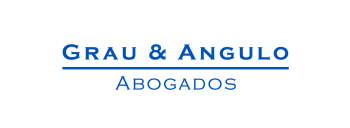Introduction
In a September 30 2015 decision the La Coruna Court of Appeal upheld a first-instance decision sentencing the owner of around 10,000 items of clothing bearing well-known trademarks, used without the holders' consent, which had been seized in its warehouse.
The first-instance decision included a prison sentence, a fine and, with respect to civil liability, the payment of damages to the holders of the infringed trademarks.
The appeal court dismissed all of the defendant's appeal claims, of which the following should be highlighted.
No evidence of criminal intent ignoring counterfeit nature of goods
In line with its own case law, the appeal court based its decision on the fact that, in order to determine criminal intent, certain circumstances must be considered, including the defendant's behaviour and his procedural activity.
In this case, the defendant's denial of any knowledge that the garments were fake was undermined by:
- the lack of documentation proving the origin of the garments; and
- the lack of purchase invoices regarding the seized products issued by authorised dealers or the corresponding authorisation by the trademark holders.
In addition, the appeal court considered:
- the large number of items seized and the great variety of infringed trademarks;
- the experience of the accused in selling these products;
- the well-known nature of the infringed trademarks; and
- the fact that the accused had tried to register a name as a trademark which was very similar to one of the infringed trademarks.
The appeal court further considered the legality of assessing as evidence of culpability the lack of a convincing explanation from the defendant, citing the European Court of Human Rights' decision in Murray v United Kingdom, which stated that the absence of an alternative explanation from the defendant when he or she is the only person able to provide one could lead to the conclusion that no alternative explanation exists, and therefore that the defendant is guilty.
Sentence to pay damages was inappropriate because it was not proven that infringing items were sold
The judgment began by noting the two existing case law theories in relation to whether the storage of products infringing IP rights causes financial damage to the rights holder. Of the two theories, citing Spanish criminal procedural law experts, the appeal court chose the 'most solvent' doctrine to assert that this doctrine highlights that the civil damages action which can be brought in criminal proceedings is the same as that in civil proceedings.
Following this doctrine, the appeal court confirmed the first-instance decision which ordered the defendant to pay damages to the holders of the infringed trademarks, and cited various judgments from other Spanish appeal courts which established that damage to a trademark holder occurs when a fake product with the same trademark is put on the market because this leads to a decrease in sales of genuine products.
This doctrine reaffirms that, although no consumer interests are harmed, the interests of the rights holders are harmed because:
- moral damages result from the unlawful use of the trademark, logo or distinctive sign by a third party; and
- there is a loss of profits, which will be higher the more fake goods there are circulating on the market.
The decision clarified that the doctrine states that financial damage occurs simply due to possession of counterfeit goods intended for the market because the increase in counterfeit products is detrimental to purchases of the original products, even if no specific sales have taken place.
Regarding the quantification of damages, the appeal court confirmed that it is correct to apply the criteria set out in the Trademark Act to ex delicto legal liability and stated that there is substantial identification of liability in both civil and criminal proceedings, apart from the procedural peculiarities, thus reaffirming that the Spanish system grants the possibility of exercising a civil action in criminal proceedings.
For further information on this topic please contact Dalia Ferrando at Grau & Angulo by telephone (+34 93 202 34 56) or email ([email protected]). The Grau & Angulo website can be accessed at www.gba-ip.com.
This article was first published by the International Law Office, a premium online legal update service for major companies and law firms worldwide. Register for a free subscription.



